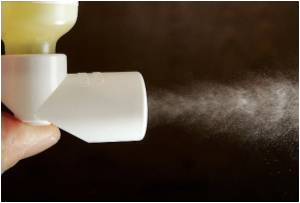A widely prescribed respiratory mist inhaler is associated with increased mortality rate among patients with COPD, reveal studies published by BMJ.

The study's findings have been contested by the German maker and an outside commentator noted that, in absolute terms, the number of deaths was very low.
The drug, tiotropium bromide, which is commercialised as Spiriva, relaxes muscles in the airways. It is designed to ease symptoms of chronic obstructive respiratory disease (COPD), the world's fourth leading cause of death.
The study was an overview of five trials in which patients, chosen at random, used Respimat, breathing in either Spiriva or a placebo.
A total of 6,522 patients were enrolled, 3,686 of whom used the drug and 2,836 used the lookalike. Two trials lasted 12 weeks while the others were long term, lasting one year.
The risk of death among patients using Respimat with Spiriva was 52 percent higher than with in placebo group, according to the paper, basing this estimate on data from long-term use.
Advertisement
Tiotropium belongs to a class of drugs called anticholinergics, which increase the risk of heart rhythm disturbance, especially in those with a history of cardiac problems.
Advertisement
The study did not look at the powdered form of Spiriva, which is administered in a daily dose of 18 microgrammes through a device called a HandiHaler.
Respimat delivers Spiriva as a mist in either five or 10 microgramme doses. In the review, 847 participants, in four of the trials, received the 10 microgramme dose; their risk of death was twice that of the placebo group.
Previous studies have indicated that blood-level concentrations of Spiriva, at five or 10 microgrammes, can be between 35 percent and 300 percent higher when compared with the 18-microgramme dose from the HandiHaler, according to the BMJ review.
Asked by AFP to respond, the German pharmaceutical firm Boehringer Ingelheim said it disagreed with the study's conclusions.
Clinical tests, it said, showed mortality rates "were within the range of other COPD trials" and data about the product's risks and benefits were well established.
It also pointed at what it called the limitations of the analysis, noting that the authors themselves said their estimates could be "imprecise owing to the fairly low incidence rates."
This argument was also put forward in a BMJ editorial written by specialist Christopher Cates of St. George's University of London medical school.
In absolute terms, "death was a rare event" in the five trials, he noted. Statistically, for every 1,000 patients treated for a year, 18 would die in the placebo group and 26 in the Spiriva group.
More than 55 countries have licenced the Spiriva Respimat, although the device has yet to gain regulatory approval in the US.
A 17,000-patient study is underway in several countries comparing the HandiHaler and the Respimat.
Pending its outcome, "the indirect evidence" is that Handihaler is safer than the Respimat, and if patients have a strong preference for the mist inhaler, "the possible increased risk" should be explained to them, Cates said.
COPD, a term including chronic bronchitis and emphysema, kills more than three million people each year, many as a result of smoking.
Source-AFP










